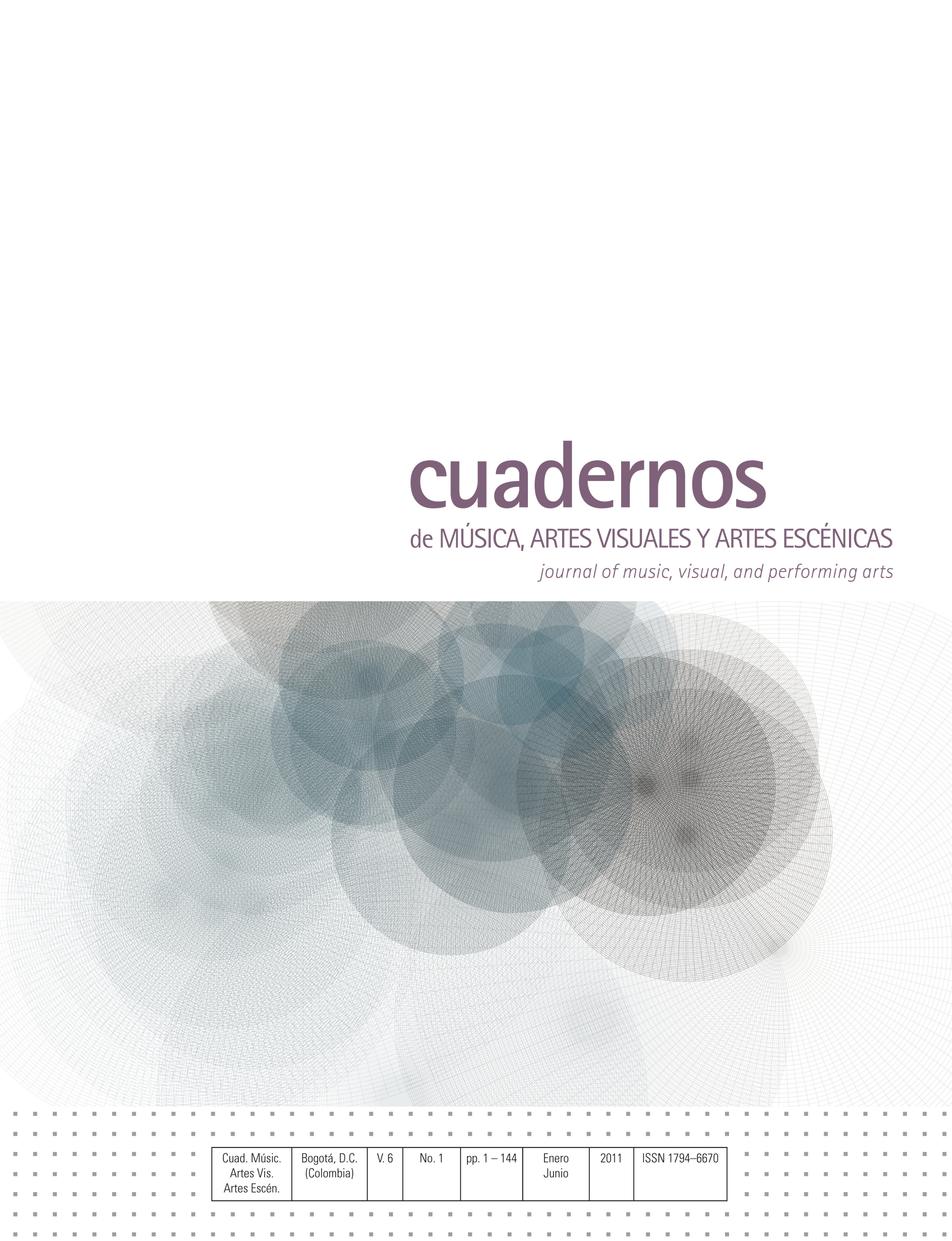Abstract
Este artículo explora la forma en que se ha construido el canon del jazz en Colombia, a través deun análisis de discurso de doce artículos publicados para el festival Barranquijazz de 2009 y de 31sobre el jazz publicados en la revista cultural 91.9 La Revista Que Suena (editada por la EmisoraJaveriana Estéreo). El análisis pretende mostrar que en la construcción del canon del jazz en Colombiasubyacen cuestiones políticas que pueden estar relacionadas con la actual proliferación anivel local de programas formales de jazz en escuelas universitarias de música. La pregunta quesurge como consecuencia del análisis es: con la legitimación del jazz como objeto de estudio enla universidad, ¿se estarán repitiendo y reforzando algunos mecanismos culturales excluyentes?Palabras clave: Jazz, legitimación, canon musical, cultura, formas de valoración.This journal is registered under a Creative Commons Attribution 4.0 International Public License. Thus, this work may be reproduced, distributed, and publicly shared in digital format, as long as the names of the authors and Pontificia Universidad Javeriana are acknowledged. Others are allowed to quote, adapt, transform, auto-archive, republish, and create based on this material, for any purpose, provided the authorship is duly acknowledged, a link to the original work is provided, and it is specified if changes have been made. Pontificia Universidad Javeriana does not hold the rights of published works and the authors are solely responsible for the contents of their works; they keep the moral, intellectual, privacy, and publicity rights.
Approving the intervention of the work (review, copy-editing, translation, layout) and the following outreach, are granted through an use license and not through an assignment of rights. This means the journal and Pontificia Universidad Javeriana cannot be held responsible for any ethical malpractice by the authors. As a consequence of the protection granted by the use license, the journal is able to publish retractions or to correct information already published. Publishing contents in this journal does not generate royalties for contributors.


